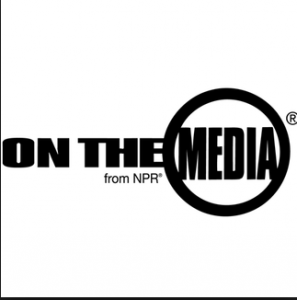
On the Media by NPR is my favorite podcast. When I’m home washing the dishes or doing laundry, it’s my go background noise. In just under an hour, the podcast, hosted by Brooke Gladstone and Bob Garfield analyzes the week’s media phenomena and mishaps with a sharp, witty tone.
This week, Garfield managed to make the ethical debate around media coverage of ISIS upbeat and interesting, and their humorous banter and quick thinking immediately pulled me into the show.
I listened to On the Media this week at the gym, because multi-tasking is wonderful especially when you’re completing the miserable chore of staying in shape. Despite the fact the podcast carried me through my hour-long cardio session, the length is one of the downsides of the show. My attention span tends to be about half-an-hour for listening and I definitely felt the need to refocus during the podcast and listen harder to follow the discussion.
However, when I logged onto the podcast’s website, I found that you could choose which segments to listen too instead of having to digest the entire episode. Aside from the length, the production value was incredible. The sound quality was excellent as it felt like I was listening to a clear radio broadcast. In other words it didn’t sound like it had been recorded in someone’s Grandma’s basement on an iPhone. Additionally Garfield, the only host as Gladstone was on vacation, had arranged an impressive lineup of guest speakers including the artist behind Abdullah X, a British comic art series that discourages young men and women from joining jihadist movements and ISIS. The creator, who chose to stay anonymous because of his status as a former jihadi, spoke the Garfield candidly about his negative experiences joining extremist groups to find religious fulfillment and explaining how media can help influence young men and women. This segment gave lots of listeners something to tweet about and the “share” button on the podcast’s online site facilitated a discussion on social media:
Best new word of the day: Jhi-hobbiest. @onthemedia
— Ron S (@GoneAFK) September 27, 2014
In another interesting move, I could tell that the podcast had been loosely edited to retain its original and authentic quality. For example,one interview subject called in from her home and you could hear her two dogs barking and playing in the background. Garfield joked about this with her, simultaneously connecting with the audience and demonstrating that he’s not JUST a journalist, but a person, which gave the show a genuine feeling.
To Produce or Not to Produce?
As a journalist I think that podcasts are a good way to get your work and your voice to a larger audience. Whether it’s reading your story on a podcast or discussing a subject you’ve reported on frequently, podcasts can’t do any harm to your journalistic reputation.I don’t know how many media consumers listen to podcasts, but my guess is that the numbers aren’t incredibly high. For the sake of convenience, I think that podcast must appeal to the “on the go” type of person who wants to tune into a show while driving to and from work, working out, traveling or simply getting things done. Podcasts are a fun alternative to reading a newspaper or getting information off a website because they allow you to multi-task.